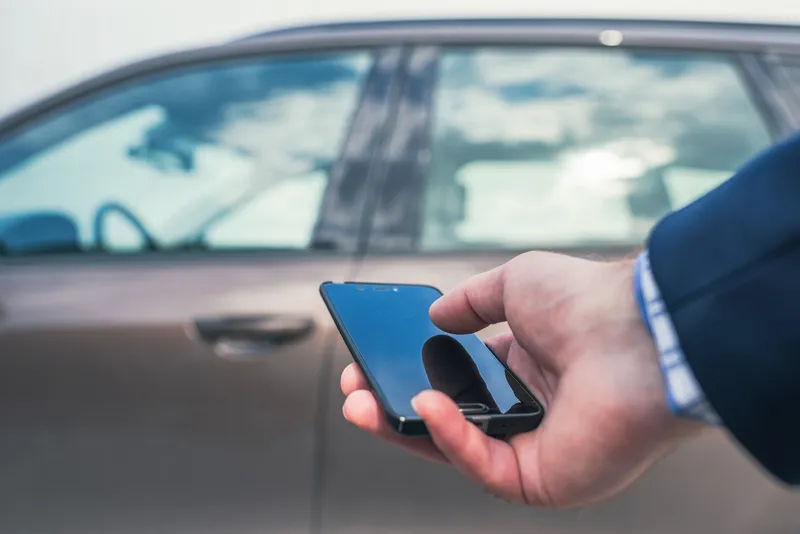
Geotab has unveiled a Geotab Keyless, a combined solution that integrates a secured digital key function with a fleet management product to help car-share fleets manage their assets.
Keyless vehicle access is expected to help fleets seeking to improve cost and operational structures and consumers looking to move away from vehicle ownership.
Christopher Mendes, vice president of electric vehicles at Geotab, told ITS International via Zoom, the solution can also help electric vehicle (EV) car-sharing - because those unfamiliar with these services in North America drop the vehicle off and forget to plug it in.
“The next user comes along [and] cannot use the vehicle because it does not have enough range, so being able to detect that is super-key,” he continued.
“Geotab has put a huge investment into making sure we get the right data out of the vehicle, so detecting whether it is plugged in, charged, instantaneous range and other challenges such as issues relating to the charging station.”
The company says Geotab Keyless supports any make, model and year of vehicle that has a key fob and provides access to telematics data including asset accounting, suitability analysis for corporate car-sharing and remote vehicle management.
A key fob is a small electronic device that allows drivers to unlock a door, start a vehicle or remotely initiate the action of another device such as a garage door.
Fleet customers interested in implementing Geotab Keyless can pair their Geotab telematics solution with a vehicle reservation system software partner of their choice to meet individual business needs.
Current software partners for Geotab Keyless include Wunder Mobility, Ridecell, Fleetster, Eccocar and Moove Connected Mobility.
Alternatively, fleet operators can create their own reservation software using Geotab's Keyless application programming interfaces (APIs).
Once a key fob is embedded into the hardware, drivers can open their third-party software app, locate the OEM button on the screen and use the features to lock, unlock and start the vehicle.
In addition, the keyless functionality can be enabled by near-field communication tags and directly over the cellular connection.
Geotab is to expand the solution over time to include other applications and third-party digital key solutions as well as OEM telematics' APIs.
Speaking about the effect of the coronavirus pandemic, Mendes described the impact on public car-sharing in North America as “brutal on those companies” but also recognised an increase in demand on the “corporate and government side”.
“In North America, the state, federal and municipal governments are under enormous pressure from a budget perspective and are all looking at ways to cut expenses,” he revealed.
“So this is low-hanging fruit because when you look at a situation like this immediately you can start to get rid of vehicles, that raises a little bit of money and reduces operating expenses.”










